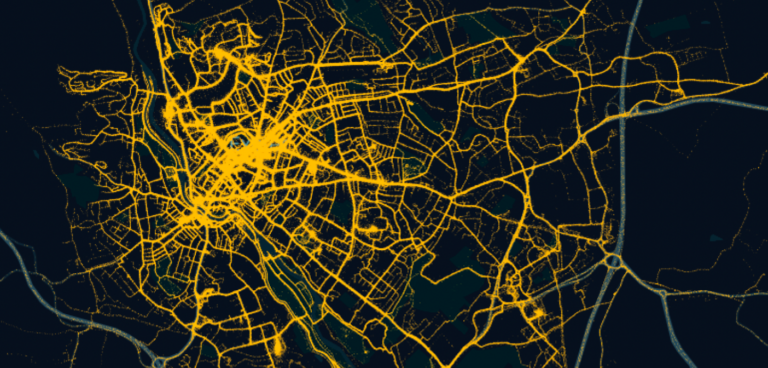The University of Plymouth is conducting new research using sensor data from Exeter’s bike share fleet to better understand cycling and act as a blueprint for how cities could be better planned in the future.
Researchers at the Environmental Futures and Big Data Impacts Lab are using the Co Bikes data to study cycling in the city, with the goal of helping to improve the fleet service and provide insights that will help the council to support cycling.
The insights used for this new research are being collected through Co Bikes’ partnership with See.Sense. In a world-first initiative, See.Sense are gathering advanced data insights from the Co Bikes fleet, delivering insights that go beyond the type of data that is usually able to be captured on bikes, the partnership said.
Using the patented See.Sense technology, Co Bikes are able to provide insights on route popularity, swerving and braking, speed, dwell time, road surface condition, as well as bike location and bike usage statistics.
The smart fleet sensors contain patented AI-sensor technology to monitor the rider’s environment up to 800 times per second, enabling situational awareness around the rider that provides detailed levels of insight. See.Sense added altogether these data insights paint a vivid picture of cycling in Exeter that was previously unobtainable.
Route popularity and dwell time of Co Bikes users is of particular focus, as this will enable researchers to understand where cyclists are most commonly travelling and how long they are staying at their destination.
In turn, this will allow the Impact Lab to gain an understanding of the provisions needed for e-bike users. By studying the origin and destination points of journeys from each Co Bikes station, researchers will be able to determine the effectiveness of each individual docking station and plan for the creation of future stations.
Additionally, OSM data and street map data will be plotted to examine the impact of hills and gradients on route choice. Research will also consider the impact of seasonal and weather conditions on e-bike usage in Exeter, and assess whether this should be taken into consideration for future planning.
The data and research from the Impact project will be shared with Devon County Council, enabling the council to use See.Sense data to ‘sense check’ planned infrastructure proposals to determine if they align with existing route choice data. This will also provide an additional layer of data for cycle network planners in Exeter that can aid in the creation of a Local Cycling and Walking Infrastructure Plan for the city.
Philip McAleese, CEO of See.Sense, said: “As we move towards a future of sustainable travel, the need for detailed, comprehensive data to plan cycling networks that are connected, safe, and accessible for all is increasingly clear. This project, in partnership with Co-Bikes and University of Plymouth Impact Lab, is leading the way in creating safer and more connected cycling.”





